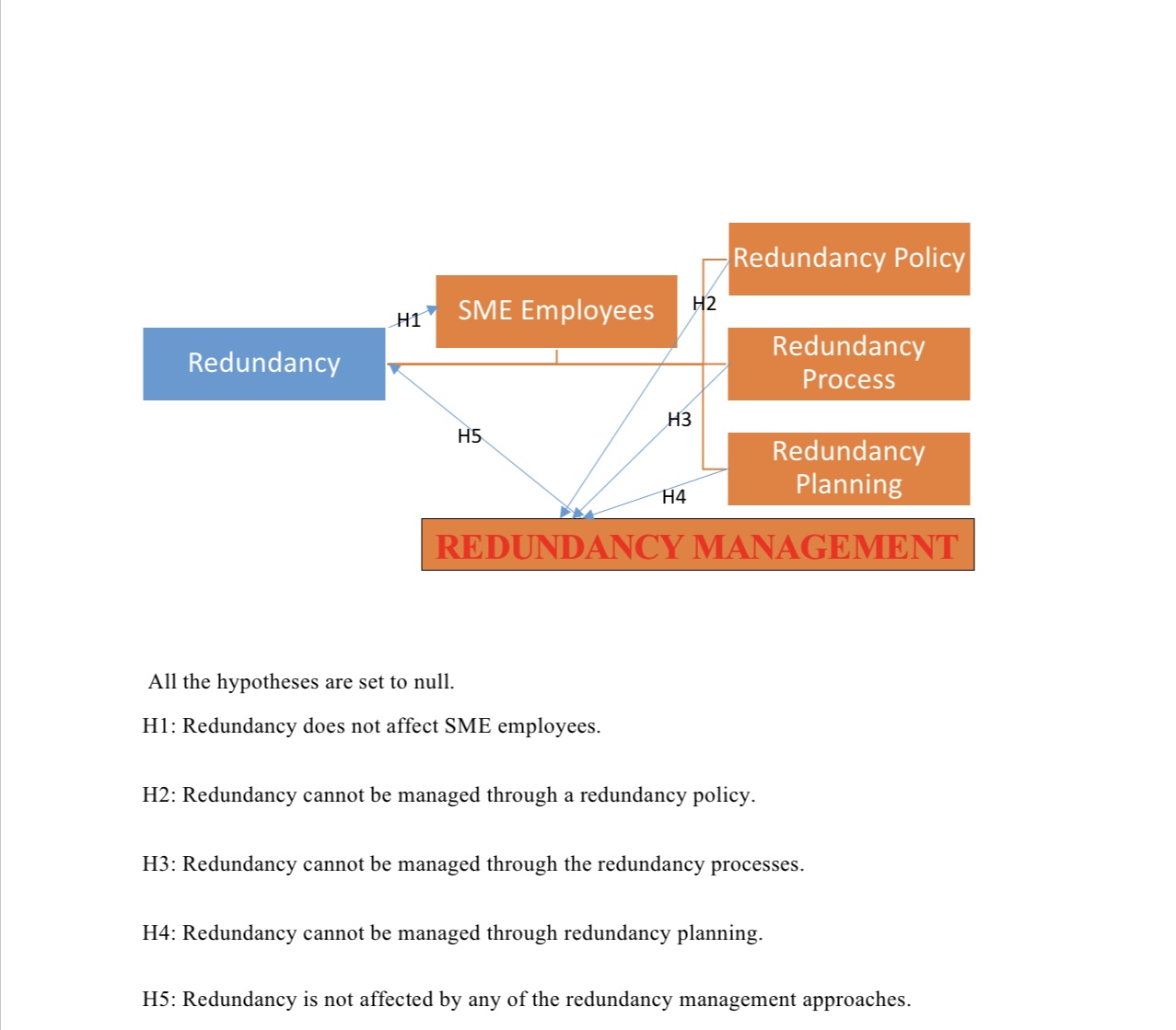EVALUATE THE IMPACT OF REDUNDANCY ON EMPLOYEES OF SMALL AND MEDIUM ENTERPRISES (SMEs)
Redundancy is a challenging reality faced by Small and Medium-sized Enterprises (SMEs) in the manufacturing industries in Nigeria, especially during economic downturns and organizational restructuring. This research project aimed to examine the various aspects of redundancy within these SMEs, focusing on its types, reasons, and overall impact on employees’ well-being. Additionally, the study sought to identify the challenges encountered by SMEs in managing redundancy and recommend effective strategies for mitigating its negative consequences. Data were collected through an online questionnaire administered to employees of manufacturing SMEs in Nigeria. The data was subjected to reliability and validity tests using SPSS. Correlation and regression analysis was also conducted. The research explored the demographics of the respondents, including gender distribution, age groups, educational qualifications, and years of experience. The study analyzed the reasons for redundancy, with economic recession, company financial constraints, merger & and acquisition, and repositioning emerging as the primary triggers for redundancy actions. Findings revealed that redundancy has both financial and psychological effects experienced by affected individuals. The study also discovered the challenges faced by SMEs in managing redundancy as insufficient communication, absence of severance packages, and inadequate preparation of employees for post-redundancy life. The study recommended establishing comprehensive redundancy policies, prioritizing employee well-being, offering redundancy preparedness training, promoting a positive work culture, and continuously evaluating and improving redundancy management practices.


